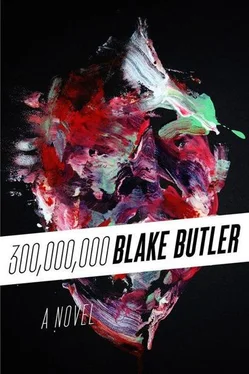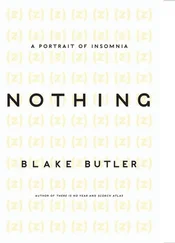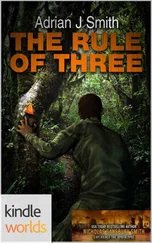In pleasure, reign.
Wet on the bed our old body flooded its wet out. Set in the mush of pus our organs it sat and listened. What rubble we had suffered. What day removed.
With hands cold in the mirrors, we took our old skin up. A fingernail slitted along the cream edge of the stabbing allowed the hand to feel down deep between our flesh, freeing with one clean fist the left lung of us from the hot index of cells. Clutched between fingers our bored hand tickled the organ, a spackled hamhock warbling in veiny tendrils.
With its bread, we filled our mouth. We tongued the surface, tasting hair there, the leathered slopes where air for years has entered, fixed and functioned through the body. Our top and bottom teeth met inside the meat. We felt the mirror there behind us watching in silence as we ate the left half of the organ whole; the substance made loose popping noises against the gums and palate, our pressed dynasties singing hard against the slip of the enamel, taking the taste of where you’d sat inside the living room those nights alone, remembering whatever you wish you would remember.
We devoured what within the head remains. We licked and sucked the groove-holes of the skull’s lip where the blade had chipped against its shape, elongating the fissure where before there fit the organ of the eye. We ate the mush remaining of the stabbed eyes, the destroyed lenses, mushy cake. The vision left no resin, going down clean, hearing in the cells of us the shaking of the colors of the encased decades of sight becoming flesh, returning to the form it had been whipped from, anywhere but now.
There were, as well, the other organs: the stringy legs, the darker sections of the kidneys clobbered with impurity, the gift boxes of the sternum’s circus, the cake party of the intestines, the thighs, the toes, the knees. We ripped and chawed what we could pry loose from the internal structure, which was a lot. Our jaws worked no music as we felt our stomachs filling. The meat of us inside us disappeared, bulging water-shaped in globe of pregnancy repeated. Our blood was bright and shining in the room. The walls were watching.
Now we must fuck. In the presence of only ourselves, we would make fuck on the remainder of ourselves. The killing and the eating of the flesh of our old body had made us beyond horny. We were flush with new blood.
Our body shuddered against our skin. We loved us. We wanted to have us and everything we could become wholly forever. We would fuck us everlasting. Our glands were ours. The hole of us that we were fucking was enormous. We couldn’t tell which of us was which. We rode hard and loose upon the gray nub of the cake self split and choking blood around the bed. We heard the peel of the remaining world in our minds forever onward wishing too to get fucked and do fuck with what we were or could have been. Either the self beneath us was screaming or we were screaming for it to scream, in the voice of anybody.
We were fucking us with force. Our cock or hole around our cock or hole purred nasty for more power, the pudding of the blood and massive shaping making any feeling in us blown out and absent of clean color but still causing sparks of friction where it sat and peeled with pressure. It was hard to keep the body there in one piece, for all the stabbing we’d done already, but we held the mass together with our hands as best we could and thrust and rammed and focused our weeping on the gash of how to make ourselves come.
The coming come was a sled-vision, a blurring hexagonal solid. It floated dry in far-off orbit around the house slipping down against the human light of day, as outside the house the air itself was calm.
The fuck was over before it began. Our organs were turning pliable again already, made for elsewhere. It didn’t matter. Here I was always again yours and you were mine. Already filled with all eternal come splayed underneath us, the body of our body was not anywhere where we’d go, every death turning milled in mills beneath each new instant undefined; our future body not without organs but without area; without perimeter or mission, from whose wounds left out to rot in silence alone roared a wordless, faceless way of being.
[YOUR NAME]: [ stricken from record ]
Very soon then I could hear no one and nothing else. Where every hour disappeared inside the idea of every life as last I felt it, it held no contour beyond what it had been. The itch it left was nothing more than air alone and unrepeated. I was allowed then in the absence to feel anything I wished, to remember anything I wished, without vocabulary.
And yet I loved the feeling of the disappearing. I wanted it to never cease. The slower I tried to make it go, the less there was left behind thereafter.
My final body rose from what we’d been. I was the last remaining person, alive beyond any memory, or now. I could feel my name inscribed the endless faces on the land of the bodies slain in layers carried in us all echoed as the gristle of today.
My skin was soft. I remembered nothing, which meant I could remember anything in any head, which means I did not have to remember to still feel it knitting in me, turning in against itself, as what I was. My arms resembled every arm, every inch bursting over with tattoos and wounds the flesh had eaten down into me, conformed intact with what I was. I could go on now forever in the instant despite all I’d done and what had been done before me, fearing nothing of the shift of blood and skin that formed the ground, the light shaking in marrow of the nature of my breathing, thinking, wanting, eating, laughing, each now no longer caving me with age.
I did not wear a ring. I could not remember what a ring was.
All remaining land was only sand — white sand forever shaken from the resin of our scalps and fingers, flesh torn apart; our bodies rendered at last no longer, unto powder, shimmered with all prayer, though you can no longer tell one body from another, from the ground itself. No matter which way I went or how far into it, the sand continued, all directions, over oceans, every forest.
I did not know why I walked. The heat of the dry scape burned my feet beneath me. I could feel the spaces in me where I’d had a friend once, a family, somewhere out here, like the light. The sand is what the sand is.
Nowhere else. I would find perhaps here or there among the plane of planning a jawbone or a locket, a strand of hair unmelted several feet deep, or a glove of glass, or some white shell. I pressed the objects to my face, heard nothing, and in placing them again against the ground would soon feel them lost in untraceable whiteness.
I could not remember why I’d ever went.
I knew I had forgotten where I’d been already and was walking the same surface many times repeated, seeing the same things new as nothing new.
I could not remember my name, the word for anything. I did not know how long time had been this way against me. I could tell no difference from any old day and the last. I heard nothing sing within me.
I stopped wherever I’d become.
I stopped and saw all light resembling the same.
The land was no one’s. Wherever I looked upon it, it opened on itself, into more of itself. There was more inside it than it even believed in, though it could do nothing with it now.
Anywhere in this expanse I stopped and stood and looked and felt no dream.
I could not remember where I’d come from or after who then.
I could hardly tell where I ended and sand began.
I did not know why there were no walls around me.
I made a marking in the sand. The marking allowed my mind a small relief, as once within it I could no longer remember anywhere but.
I knew the marking wore a door. Here the door was a preternatural idea and had no name beyond it simply leading to what would be the first room of the space, which I would build into a copy of the room where in my childhood I had sat on the floor with my hands before me and my mother behind my back, stroking my hair or humming or sewing or singing the song or silent in the night exhausted for the machines, the color of the TV shining low against our faces or the face of the books my mother planned to read aloud to me, bestowing its hidden crevices of nowhere upon the child I was already becoming in the machine of my brain alone.
Читать дальше












